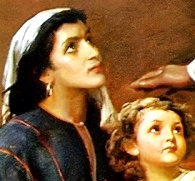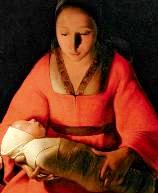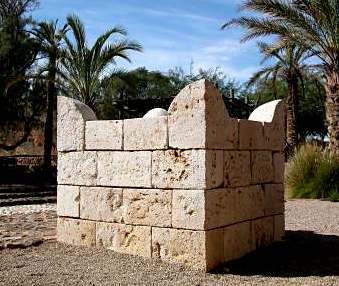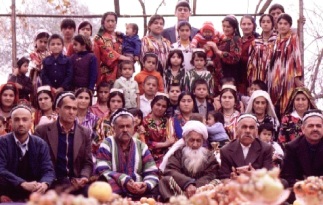What’s on this page? 
- Key ideas on Hannah from popular books on Bible Women
‘1 Samuel actually suggests that, from a man’s point of view, a woman with a happy marriage need not be distraught about not having any children. Hannah’s situation made her very unhappy, especially at the time of the annual sacrifice, when she would cry and would not eat.
Elkanah’s reaction to Hannah’s unhappiness is worth noting: “Hannah, why do you weep? Why do you not eat? Why is your heart sad? Am I not more to you than ten sons?” This is hardly the response of a patriarch who can see value in women only as childbearers and implies the possibility of a relationship in which love was 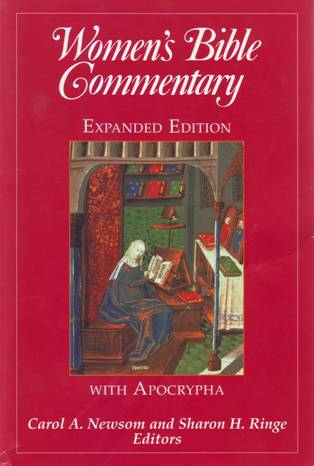 more important than childbearing.
more important than childbearing.
It should be noted, however, that Elkanah was not himself childless. His society gave him the opportunity, and he was apparently able to afford, to have both a wife to love and a wife to make children. Since he had already filled his need for a family to remember and honor him (the only kind of “immortality” known to these narratives), his lack of understanding for Hannah’s unhappiness begins to look less sentimental and more naive or even insensitive.
Hannah, for her part, while she may have loved her husband, still needed children, and not only for her personal emotional fulfillment. In her society a woman’s prestige was based at least partly on her demonstrated ability to produce offspring. It was in such a situation that Peninnah could torment her.
To the narrator, and presumably his audience, childlessness was not understood as a physical phenomenon, but as a decision of God – and, indeed, in some instances as a punishment from God (see Genesis 20).
Hannah seems to agree with this understanding and takes her case directly to Yahweh. If it is Yahweh who ”closed her womb,” only Yahweh can give her children. She goes to the temple and vows that if Yahweh will give her a son, she will, in effect, give him back to Yahweh as a temple servant. This vow is in itself telling: far from wanting a child for emotional comfort, she is offering to forgo the pleasure of having him with her while he is growing up. She seems simply to want to give birth to a son.
It is possible to take another view of Hannah’s vow, however, that is perhaps more nuanced. In Israel one gave the firstfruits of animals and of the harvest to Yahweh, probably in hopes of receiving in return the blessing of continued fertility…. If Hannah’s offer to dedicate her firstborn to Yahweh can be seen in this light, her motives are more complex. She does not simply desire the societal status and relief from rival-wife torment that bearing a son would bring but also “offers up” her firstborn to Yahweh in hopes of receiving more children in return.
… And this is what happens: Hannah bears three sons and two daughters.’
Women’s Bible Commentary, Carol A. Newsom and Sharon H. Ringe Eds., John Knox Press, Louisville, 1992, p.95-96.
Hannah seems to be past her youth, but still well within childbearing age. Scorned by Peninnah, a rival in her own household, she is one of a long line of barren women God gifts with unusual sons. Unlike Sarah or Rebekah, however, Hannah shows signs of conditioning in submissiveness. She vents no displays of anger toward Peninnah, and when the priest Eli makes offensive assumptions about her behavior, it is she who takes pains to show him courtesy.
Eli’s own sons have gained notoriety as scoundrels who care little for Yahweh (1 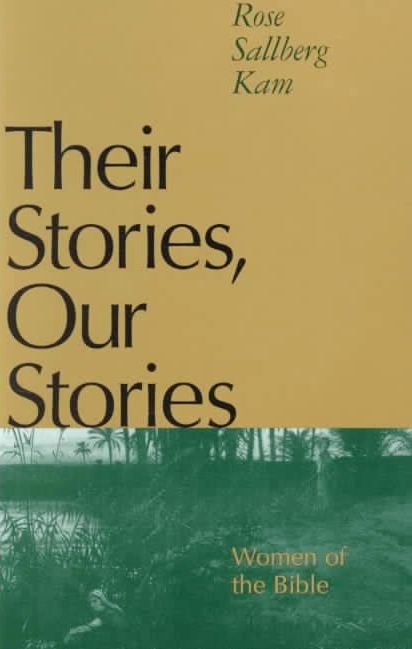 Sam 2:12), yet when Hannah brings her child to Eli, she does not so much as hint that she questions his ability to rear him properly.
Sam 2:12), yet when Hannah brings her child to Eli, she does not so much as hint that she questions his ability to rear him properly.
Only in prayer does Hannah’s true strength emerge. She is a woman of faith and hope who boldly pours out her need and desperation to a God she knows personally. She does not think of prayer as a genteel exchange between a proper matron and a mighty king. Like Sarah who laughs and Deborah who exults in bloody victory, Hannah gives God what she feels at the moment. In this very dropping of her shields, she releases whatever has prevented conception, making it possible for God to help her.
It could not have been easy to be a mother in Israel during the era of the Judges. Then, as now, mothers gave birth with the dragons of war standing by to devour their children. Though sanctified by the concept that war was dictated and led by God, these campaigns were candid matters of brutal combat followed by looting and burning of the defeated village, execution of anyone considered a threat (usually all of the men), and enslavement of the women and children.
Then, as now, thinking women must have needed immense faith and hope to bring children into the world. Even as they longed for children, they must have worried, Will my son survive to adulthood? Will my daughter know peace and security? Then, as now, racked with concern for all women’s children, they must fiercely have longed for peace…
Their Stories, Our Stories, Rose Sallberg Kam, Continuum, New York, 1995, p.106-7.

